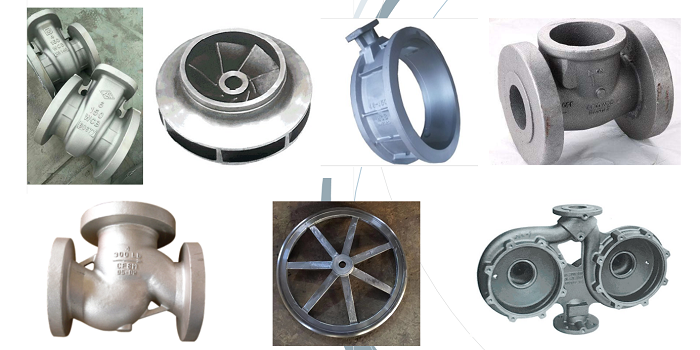Ductile iron casting, also known as nodular or spheroidal graphite iron, is a widely used material in industrial manufacturing due to its unique properties and exceptional strength. This comprehensive overview explores the properties and strengths of ductile iron casting, highlighting its advantages and applications in various industries.

- High Strength: Ductile iron casting exhibits impressive strength properties, making it suitable for applications that require robust and durable components. It offers a tensile strength of 60,000 to 100,000 pounds per square inch (psi), providing excellent load-bearing capacity and resistance to mechanical stress.
- Ductility: Unlike other forms of cast iron, ductile iron casting is characterized by its high ductility. It can undergo significant plastic deformation without fracturing, allowing for easier shaping, forming, and machining processes. This property makes ductile iron casting more adaptable and versatile for complex component designs.
- Toughness: Ductile iron casting possesses exceptional toughness, which is the ability to withstand impact and absorb energy without fracturing. This toughness is attributed to the presence of graphite nodules, which act as stress relievers and prevent crack propagation. It enables ductile iron casting to withstand sudden or cyclic loads, making it suitable for applications subjected to dynamic or impact loading conditions.
- Excellent Wear Resistance: Ductile iron casting exhibits excellent wear resistance due to the presence of graphite nodules. These nodules act as solid lubricants, reducing friction and wear between the surfaces of moving components. This property makes ductile iron casting ideal for applications involving sliding or abrasive wear, such as gears, rollers, and wear-resistant components.
- Corrosion Resistance: Ductile iron casting can be engineered to provide good corrosion resistance, making it suitable for applications in aggressive environments. By adding alloying elements or using protective coatings, the corrosion resistance of ductile iron casting can be further enhanced, making it a viable option for applications exposed to chemicals, water, or corrosive atmospheres.
- Sound and Vibration Damping: Ductile iron casting exhibits excellent sound and vibration damping properties, reducing noise and vibrations generated during operation. This characteristic is beneficial in applications where noise reduction, vibration control, and improved operational comfort are essential, such as automotive components, machinery bases, and industrial equipment.
- Machinability: Ductile iron casting offers good machinability, allowing for precision machining operations such as drilling, milling, and threading. It can be easily machined to achieve tight tolerances and complex geometries, facilitating the production of accurately dimensioned components.
- Cost-Effective: Ductile iron casting is a cost-effective material compared to other high-strength materials like steel. It offers a favorable balance between cost and performance, making it an attractive choice for manufacturers aiming to optimize production costs without compromising on quality and durability.
In conclusion, ductile iron casting possesses a range of desirable properties and strengths that make it a preferred material in industrial manufacturing. Its high strength, ductility, toughness, wear resistance, corrosion resistance, and sound/vibration damping characteristics contribute to its wide-ranging applications across industries such as automotive, machinery, construction, and more. Understanding the properties and strengths of ductile iron casting allows manufacturers to leverage its benefits and design components that meet specific performance requirements.
